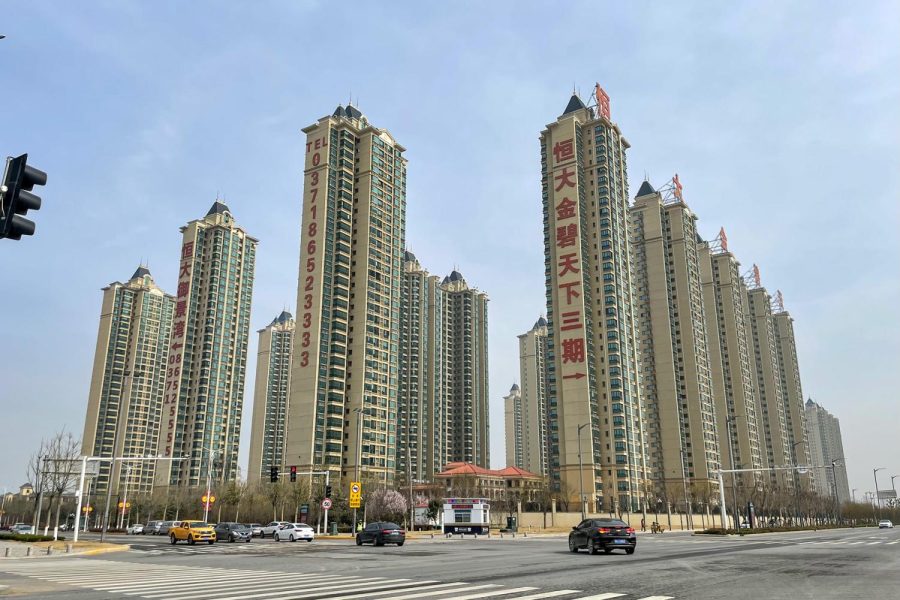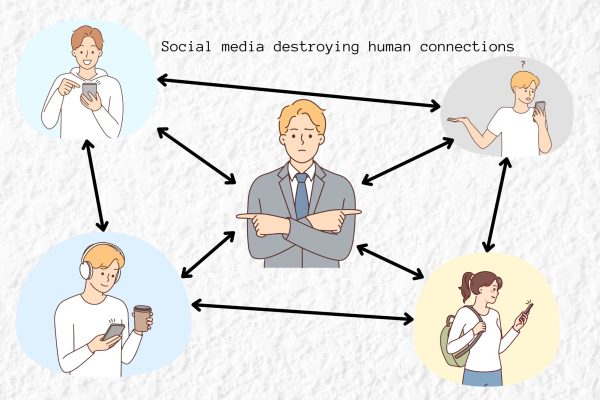China’s Achilles Heel: The Real Estate Bubble
Residential buildings developed by Evergrande in Yuanyang. Photo from commons.wikimedia.org.
February 11, 2022
*The opinions expressed within the content are solely the author’s and do not reflect the opinions and beliefs of the website or its affiliates.*
After years of application, negotiation, and “opening up” policy initiated by China’s then-president Xiaoping Deng, the nation finally joined the World Trade Organization in 2001. At the time, it showed China’s commitment to opening up its domestic market and labor force to the world. Since the enactment of these policies, China has seen rapid economic growth during most of the 21st century. However, the recent global pandemic and the complex China-United States relationship have brought this growth to a standstill. Even worse, dangerous signs regarding the country’s domestic real estate market have surfaced, as China’s most prominent real estate developer, Evergrande, has fallen into a severe debt crisis due to overleveraging. Thus, Evergrande and China’s real estate sector could be the starting point for a global financial meltdown comparable to the 2008 financial crisis if it is not addressed with speedy and responsible action from both regulators and government alike.
In 2018, Evergrande was the highest valued real estate company worldwide creating economic activities and millions of jobs. It was so powerful that officials often relied on its success to facilitate the process of opening up the country. Today, Evergrande’s failure reveals the fragility of the world’s second-largest economy. Evergrande’s stock has fallen by 75% in the past year (Yahoo), and creditors are in a panic. It has already begun to sell many of the assets of its corporate empire, but at this rate, the only way to survive is if the company keeps selling houses or receives a government bail-out. The debt it owes exceeds its ability to repay and requires a debt restructuring, which would be a massive blow to investor confidence in China’s property market.
Evergrande is not the only crashing-and-burning case in China’s property sector, as some of the other massive companies like Fantasia, Tahoe and Kaisa are also finding themselves in a deep debt crisis as news of defaults continue. Beijing has stressed its concerns and vowed to implant stricter regulations in financing to stabilize market panic. The Central Bank of China, the China Securities Regulatory Commission, and the China Banking and Insurance Regulatory Commission made statements jointly at the same time, claiming that the Evergrande issue will not affect the banking and insurance industries (ntdtv). The unusual and rare joint statements made by government agencies to intervene in market operations sends a signal of the severity of the real estate developer’s crisis.
China’s recent, meteoric GDP growth relied on three common tools – exports, consumption, and investments. Under investments, real estate alone accounts for about 30% of the Chinese GDP (CNBC). The China-United States trade war and ongoing Covid restrictions have already put exports at significant risk; the Chinese government needs to improve the performance of the other two drivers to maintain healthy economic momentum, but this has clearly been stunted by the current meltdown. China’s new policy, announced by Premier Keqiang Li in late 2021, stresses the importance of promoting consumption spending to assume the pre-Covid role of social investment and shoulder a greater percentage in driving China’s GDP growth (govcn). Despite these encouraging policies on consumption spending, little change has been evidenced in the investment category and the answer to the real estate crisis remains elusive. China has now proposed an experimental property tax to repress the second-hand housing price on the market and prevent real estate speculation. This measure would help alleviate the long-term issue of developer over-leveraging and avoid sudden housing price drops, which are not only an economic problem but will also raise social concerns. Furthermore, foreign investors that wish to share the cake also face many limitations to enter the Chinese market, such as accepting joint ventures in many vital industries. These obstacles standing in the way of other important GDP factors prove that the real estate industry is still China’s leading economic sector in the foreseeable future. Therefore, it should be the top priority of the Chinese government to do everything possible in rescuing the real estate industry instead of solely relying on consumer spending revitalization as its potential ripple effect would be far too devastating to handle.
It is imminent that China should fix its real estate crisis for now, but Chinese authorities must also realize systemic reform in the economy is necessary for long term prosperity. China is now facing a shift in its industries as China transitioned from the world’s factory to global competitors in the high technology and service industry. China needs to rely less on its real estate sector and more on driving its GDP through other diversified means to prevent an economic collapse in the face of this real estate bubble. China’s previous economic miracle can be written again if the government continues the strategy they announced in 1978, of opening up to the world with more transparency and minor limitations on investment because, after all, China’s potential is enormous considering its population size and excellent infrastructure already in place to fuel an economy that does not have to be limited by its dependency on one particular industry.














